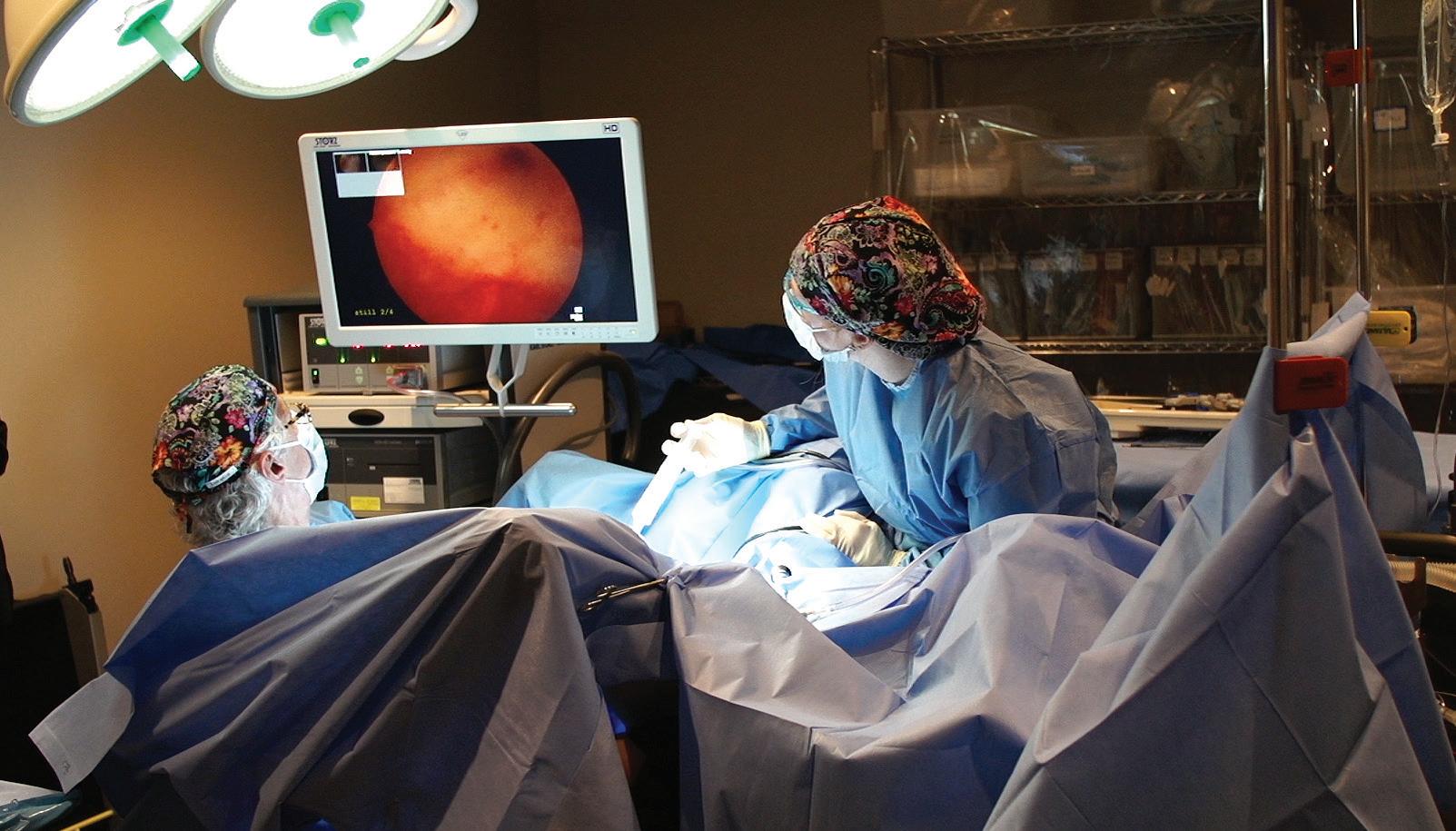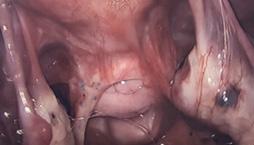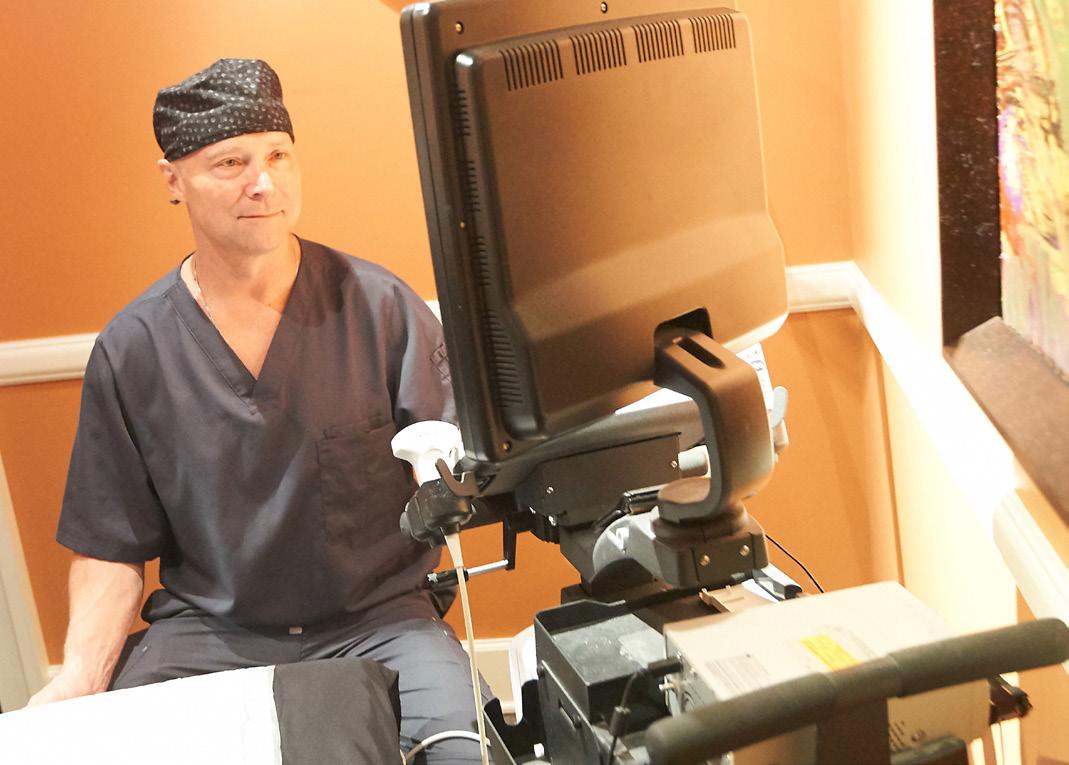
8 minute read
The Human Reproductive Story
Vasectomy Reversal

When a man undergoes a vasectomy, it is most often used as a permanent form of birth control. However, life changes and many men decide they would once again like to have children. In this situation, a vasectomy reversal is often the preferred solution, however, another option includes a TESA/PESA in combination with IVF. In short, a vasectomy reversal is a surgery that reconnects the vas deferens, which was surgically severed during the vasectomy, once again allowing sperm (male gamete cell) to enter the semen (ejaculate). The vas deferens are the tubes that bring sperm from the testicles to seminal vesicles where they are allowed to mix with semen and become part of the ejaculate. By severing this tube, sperm is still produced in the testicles, but during orgasm, they can no longer be transported, mixed with semen, and ejaculated.
The Surgery Very simply, during a vasectomy reversal, the surgeon will surgically reconnect the two halves of each vas deference, thereby allowing sperm to once again travel freely and mix with semen prior to ejaculation.
Recovery Surgery usually takes about 2 to 4 hours, and you are able to go home the same day. Recovery takes about 2 weeks. Men should not have sex or ejaculate until your doctor tells you it is okay. Most doctors recommend that you wait 2 to 3 weeks to have sex.
How will i know if it was successful? You’ll know your vasectomy reversal was successful if sperm appear in your semen after a few months. Your doctor will collect semen samples and examine them regularly for 4 to 6 months after surgery, which is usually enough time for your counts to stabilize, although sometimes it takes longer.
Cost The self-pay price for a Vasectomy Reversal is $7,900 and includes: the cost of anesthesia, the surgery itself, a 2-week post-operative check-up, and regular sperm analysis/testing post-surgery. There may be additional fees based on your unique situation. After your initial consult, a $4,000 down payment is required prior to scheduling surgery. In-house financing is available.
Other Alternatives Men who have undergone a vasectomy and now wish to father a child have other options besides Vasectomy Reversal. if you hope to conceive naturally through intercourse, then having a vasectomy reversal is your only option. However, for those who this is not a concern, a Percutaneous Epididymal Sperm Aspiration (PESA) and Testicular Sperm Aspiration (TESA) coupled with In Vitro Fertilization (IVF) is also an effective option and offers a high chance of success at a more affordable cost. Consult with your doctor to decide which is the best option for you. Many women decide to forgo the continuous and prolonged use of birth control and elect to have a tubal ligation after giving birth and completing their families. Having your “tubes tied”, as it’s commonly called, to prevent pregnancy is a fairly common procedure, but sometimes the unexpected happens or circumstances change within a family or with a partner, and a woman wishes to re-establish her ability to have children.
If you’ve had a tubal ligation procedure and wish to reverse it, CNY Fertility can perform tubal ligation reversal surgery on an out-patient basis at our Center of Superior Surgical Care using laparoscopic techniques that enable us to restore your fertility in a minimally invasive way. A tubal ligation reversal (TR), medically known as the Tubal Anastomosis, is the procedure by which a surgeon repairs a woman’s fallopian tubes, thus restoring her natural fertility so that she will be able to again become pregnant. This microsurgery procedure enables us to reduce recovery time, makes the procedure affordable, and allows women to achieve high pregnancy rates post-surgery.
The Surgery During a TR, our surgeon will reconnect both your left and right fallopian tubes by making careful incisions to reopen the surgically closed portion of your tubes. After ensuring that each tube is open by flushing them with colored water, the surgeon will then use sutures to reconnect the tubes. Once again, the surgeon will flush both tubes with liquid to ensure that each reconnected tube allows for sperm, egg, and embryo to flow freely through each tube without obstruction.
The surgery itself takes approximately 90 minutes. Tubal reversal enables most women to conceive naturally and without the use of fertility medications. Our medical team will consult with you to see if you’re a good candidate for tubal reversal surgery or if you should choose In Vitro Fertilization (IVF), and to discuss the pros and cons of both options.
Success Rates TR surgery at CNY Fertility offers our clients a fantastic opportunity to restore their natural fertility, with roughly a 60-80% chance of attaining a natural pregnancy within two years of their surgery date. Your chance of becoming pregnant and delivering a baby is highly dependent on your personal fertility health and history. Our doctors will be happy to discuss your individual situation further during your consultation.
Recovery Most women can resume walking the day of their operation and return to an exercise free version of their normal daily routine the next day. Still, we generally recommend those undergoing this surgery take off at least a week of work and abstain from all exercise for at least two weeks post-surgery. Recovery time is generally 10-14 days.
Costs Because tubal reversal is considered an elective procedure, it is unlikely to be covered by health insurance, Medicare or Medicaid.
THE SELF-PAY PRICE OF $7,900 FOR TUBAL REVERSAL INCLUDES: • The cost of anesthesia • the surgery itself • a 2-week post-operative check-up • A complementary IVF cycle if you are unable to achieve pregnancy within 18 months of the surgery.
There may be additional fees based on your unique situation. In-house financing is available. Prior to surgery, patients are required to consult with one of CNY Fertility’s doctors and have an ultrasound. We also require all surgical patients to have preoperative bloodwork. You will be given prescriptions for an antibiotic, pain medication, and possibly antinausea medicine. Insurance may cover some of these additional fees.
After your initial consult, you will be required to make a deposit or first month’s payment prior (if financing) prior to scheduling your surgery. We can usually schedule your surgery within a few months of your initial payment.
CNY Fertility International Surgical Institute


PROVIDING MINIMALLY INVASIVE SURGERY FOR OUR FERTILITY PATIENTS
Specializing in Minimally Invasive Surgery (MIS), our expert surgeons at the CNY Fertility International Surgical Institute are recognized as leaders in the fields of laparoscopic and da Vinci robotic surgery. Sometimes referred to as “keyhole” surgery, MIS utilizes small incisions, tiny fiber optic lights and high definition monitors which allow our surgeons to correct many conditions without requiring patients to undergo major surgery or large incisions. Patients go home the same day and recovery time is generally shorter and less painful with minimal scarring.
We perform: • Diagnosis and Treatment of
Endometriosis • Treatment of Fibroids (Myomas) • Tubal Reversal • Vasectomy Reversal

Endometriosis causing ovarian and pelvic adhesions

I Know Endo
BY MYRON O. LUTHRINGER, MD

The scientific community has yet to establish the exact cause and progression of endometriosis. Though many questions remain, thirty years of experience has allowed me to identify and successfully treat this common disease. Endometriosis (or “Endo”) is a leading cause of infertility and may run in families. Up to 50% of affected patients may experience fertility issues. There is also a great variety of symptoms that may or may not be present in each patient. Many symptoms are not normal and should raise suspicion for endometriosis.
These include: • crippling menstrual pain • pelvic pain lasting throughout the month • chronically heavy or long menstrual periods • painful sexual activity (particularly with penetration) • significant lower back pain with menses • bowel or bladder disorders associated with periods • allergies, migraines, or fatigue that tends to worsen around menses
Many women experience no symptoms and are affected by “silent endometriosis”. There is no definite non-surgical diagnostic test to confirm the presence of endo. Occasionally, an ultrasound or pelvic exam can raise the suspicion if there are fixed, tender, nodular, or enlarged pelvic organs. Surgical observation and biopsy are the gold standards for diagnosis and treatment. Endometriosis starts when endometrial cells gain access to the abdominal cavity establishing a blood supply for survival. This causes a local inflammatory response leading to adhesions and scarring. There exists a poorly understood association with infertility at the chemical and immunologic levels. The pelvic reproductive organs (uterus, tubes, ovaries) are affected most often. Severe disease may involve the bowel, bladder, and distant parts of the body.
Endometriosis can influence fertility in multiple ways: • distorted anatomy of the pelvis • adhesion formation • scarred fallopian tubes • inflammation of pelvic structures • altered immune system functioning • changes in the hormonal environment of the eggs • disrupted fertilization • impaired implantation of a pregnancy
Many different patterns of endo may be observed in the operating room. The surgical treatment will vary depending on the type and degree of the lesions encountered. The main goal of minimally invasive surgery (MIS) is to restore normal anatomy and function, leading to an increased pregnancy rate. One treatment plan does not fit all patients. Medical therapy to suppress hormones and regrowth may be used in combination with surgery. Even with the best medical and surgical treatment, reoccurrence may require repeat surgery in the future. Patients are encouraged to see their gynecologic provider should they demonstrate any of the above-mentioned symptoms.










